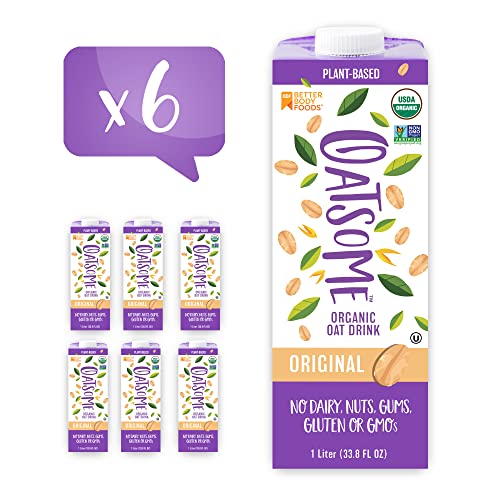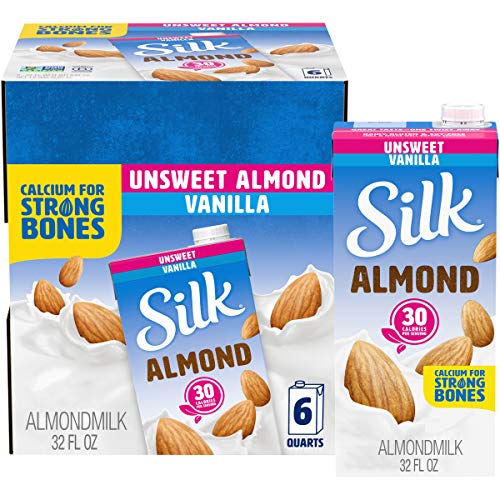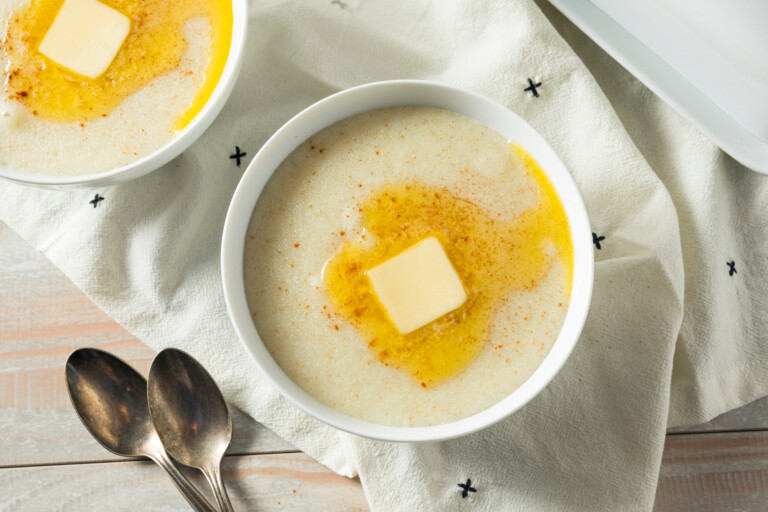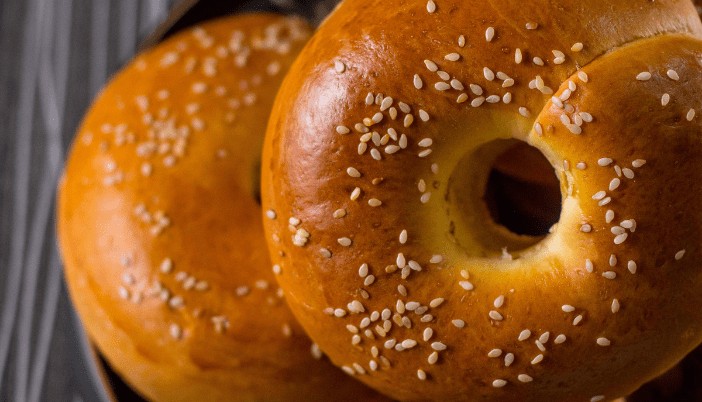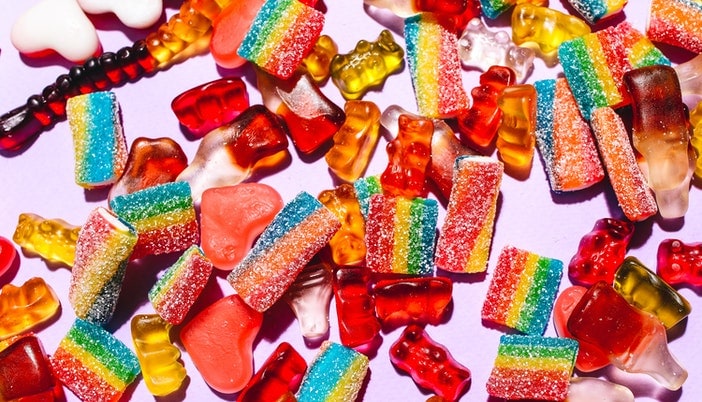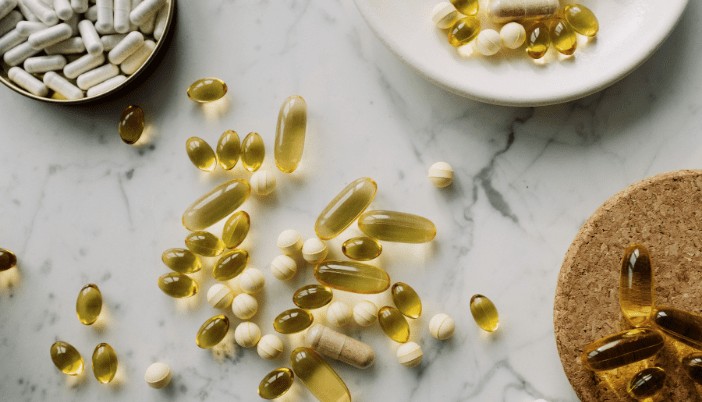Your Ultimate Guide to the World of Skim Milk!
Can Vegans drink Skim Milk?
With so many milk varieties and variations on the market, it can be difficult for vegans or those thinking of becoming vegan to keep up with what they can or cannot consume.
The short answer is – skim milk is still dairy-based milk, so no, it is not suitable for vegans.
But let’s look into the vast and confusing world of milk and see what alternatives are available for those following a plant-based diet or vegan lifestyle.
As an Amazon Associate, I earn from qualifying purchases. The links below may be affiliate links. Please read my disclosure policy for more information.
What is Skim Milk?
Skim milk is what is left when the milkfat is removed from whole milk, usually leaving around 0.1% of fat left in the milk. The contemporary main purpose behind it is to make it a less unhealthy version of milk.
Skim milk tastes the same as whole milk, the only difference is it is more ‘watery’ in texture and less creamy in taste than in its original form.
The History of Skim Milk
Before skim milk became an appealing notion for omnivores watching their fat intake/waistlines, skim cow’s milk was used for fattening pigs, and was considered by farmers as not only the very best supplement for growing pigs, but is of almost equal value for fattening purposes as it “furnishes a complete protein” and therefore, makes the pigs feed “more palatable”, ergo the pigs more profitable.
The modern version involves the fat being removed by running the full-fat milk through a centrifuge (a device that uses a spinning force to separate various components of a fluid), which forces the fat ‘droplets’ to separate.
Fat Content of Whole Milk
The fat in whole cow’s milk is often referred to as either milkfat or butterfat. In America, there are multiple types of cow’s milk available for purchase and an easy way to tell the fat content of each is by the color-coding of their packaging.
Pink or light blue tops indicate skim milk in the United States. Blue tops indicate 2% milk. Yellow or purple tops indicate 1% milk.
Is Milk Healthy for Humans to Drink?
There is considerable debate among humans as to whether cow’s milk is healthy for human consumption.
Cow’s milk contains lactose, which is a sugary enzyme that human digestive systems aren’t hardwired to digest, which is evident in a lot of people who are lactose-intolerant and therefore get sick when ingesting anything with lactose in.
Like most edible products, cow’s milk does provide some nutritional value. A survey done by the U. S. Department of Agriculture showed that consumers of reduced or low-fat milk has a greater intake of vitamins, minerals, and dietary fiber, compared to the group of whole milk drinkers who were analyzed.
Yet zinc, vitamin E, and calcium were all under consumed in each group.
The conclusion was that the whole milk drinkers were more likely to choose foods that were less micronutrient-dense, which resulted in their less healthful diets – which isn’t down to the milk intake itself, of course, and researchers at the University of Copenhagen found that drinking full-fat milk may actually be better for your heart than drinking skimmed milk.
This is theorized because full-fat milk boosts levels of ‘good’ HDL cholesterol in the bloodstream, despite having a higher fat content.
Why Milk Isn’t Vegan-Friendly
Milk is a product produced by all female mammals in order to feed their young with all the nutrients they need to grow. Because popular milks on the consumer market include cow’s milk and goat’s milk, they aren’t considered vegan because they are animal products.
The History of Milk Consumption in Humans
Cow’s milk consumption in humans is said to date as far back as 3500–3000 BC in the Americas, during which agriculture was beginning to form. Initially animals were kept only for the purpose of their labor, meat, their hides, then later, their milk.
In the Middle Ages in many countries milk was considered a rich, luxurious product – and safer to drink than most water sources. However, milk does not contain enough water content to provide humans with the hydration they need to sustain their bodies.
Health Issues with Consuming Milk
Aside from the aforementioned issues with lactose, drinking cow’s milk comes with numerous other issues, including:
Allergens:
In America, it has been recorded that up to five percent of children are allergic to milk/dairy. The reactions of which can include:
- Colic
- Constipation
- Diarrhoea/blood in stool
- Anaphylaxis
- Respiratory issues
Other health issues linked to cow’s milk consumption include:
1. Bone Fractures
A study deciphered that drinking three or more glasses of milk a day may increase the risk of bone fractures in women.
Further research found that this may be due to a type of sugar in milk called D-galactose. However, the study did explain that further research is needed before dietary recommendations are made.
Another source showed that bone fractures in older adults due to osteoporosis (weakening of the skeleton) are highest in areas that consume more dairy, animal protein, and calcium. So, while the old saying goes that cow’s milk is beneficial for children’s bone development and general bone health in adults, evidence strongly leans to the contrary.
2. Cancer
Again, due to the antagonistic sugars in cow’s milk, calcium intake sourced from milk and other foods may increase the risk of prostate cancer. Milk sugars may also be linked to a slightly higher risk of ovarian cancer in women.
3. Obesity
Milk, and most dairy products, are high-fat products, therefore regular or excessive consumption of them can increase the chances of weight-gain and obesity.
The Milk Industry & Factory Farming
The ethical and sustainability issues with the farming industry are multiple. The dairy industry requires 270 million dairy cows to produce milk worldwide.
Despite the obvious mortality issue with the cows’ lives, this also has a hugely negative impact on the environment. According to research conducted by WWF, dairy cows and their manure produce greenhouse gas emissions which contribute to climate change in a negative way.
Poor handling of manure and fertilizers can degrade local water resources across the world, and unsustainable dairy farming (which attributes to all factory farming) and feed production can lead to the loss of ecologically important areas, such as prairies, wetlands, and forests.
Animal Welfare
Although the standard life expectancy of a cow is up to twenty years, a typical dairy cow in the United States will spend its entire life inside a concrete-floored enclosure. Most are sent to slaughter after four or five years when their milk production wanes, so the average lifespan of a cow is four of five years of a miserable existence.
While independent organic farmed milk cows undoubtedly have a better, less cruel life than mass-produced milk cows, the reality is that over 90% of milk available for consumption is factory-farmed.
The stories and footage of cruelty, ill-treatment, and unfair living conditions for the cows within the dairy industry are long-standing and do not take much looking into to witness.
Milk Alternatives
Nowadays, there is myriad plant-based alternatives to animal-sourced milk, some of which include:
Made from hemp seeds, hemp milk is a plant-based milk alternative, which has a slightly nutty taste.
It is also a good source of both omega-3 and omega-6 fatty acids, and is one of the few plant-based “complete” proteins, meaning it contains all the essential amino acids humans require from food nutrients. It’s also gluten-free.
Perhaps the ‘original’ milk alternative, soy milk is made from soybeans and is a very versatile product, as it can be used in pretty much all recipes and drinks in place of cow’s milk. It’s a good source of protein and calcium, and is naturally free of cholesterol/low in saturated fats.
Oat milk has seen a particular surge in popularity recently, as it is regarded as one of the best options when it comes to sustainability. It’s versatile and often comes in gluten-free form, so it can be suitable for those with Coeliac disease or gluten intolerance.
Because it is oat-based, it is high in fibre, including a soluble fibre called beta-glucans, which may help lower cholesterol. It also has one of the lower environmental impacts, therefore is ideal for vegans of ethical purpose.
Potatoes are the gift that keeps on giving (roasties, French fries, vodka – what can’t it do?!).
Like oats, potatoes are very sustainable, and the milk requires less water to produce than some other plant-based milks. It has a low carbon footprint, making it a good choice ethically.
Peas are a popular source of protein for many vegans and plant-based eaters, and now pea milk is available on the market. Pea production generally tends to have a lower carbon footprint in terms of farming compared to other plant-based milk alternatives.
Disclaimer: pea milk isn’t green and doesn’t taste like peas! On the contrary, it has a rather ‘creamy’ taste and is ideal for plant-based Mac N Cheese recipes!
Although almond milk is a nutritious and flavorsome option for many vegans, it is not the most sustainable option. Almonds require bee pollination to grow, and there has been concern about the demand for bees to pollinate almond trees for the production of almonds/almond milk.
There are also the pesticide issues. Pesticides are often used by large-scale almond growers, which is toxic to both bees and humans.
As well as the bees and pesticides, almond plantations require over six liters of water to make just one litre of almond milk, and the majority of almond trees are grown in California, an area that has suffered from severe drought for many years, meaning it’s impactful on the environment in numerous ways and as a result, is now falling out of favour with the vegan community.
Gluten-free, packed with vitamins and minerals, and considered more ethically sound than its competitor, almond milk, hazelnut milk is a popular milk alternative, as it has a smaller environmental footprint (it requires wind for pollination, rather than bees, and use much less water), and is therefore a great plant-based substitute.
Cashew milk is another plant-based dairy milk alternative that has come under fire for not being overly environmentally-friendly. Cashew crops are generally quite low-yielding (investments that do not pay much income) and still require a fair amount of water (although not as much as almond growth), which means it isn’t the most ethical alt-milk option.
Coconuts are packed with vitamins and high in natural protein – and the good news is coconut milk is quite low in terms of its environmental impact, as it has low water requirements and deforestation isn’t applicable in the harvesting of coconuts, so it is one of the top alt-milks available. Coconut cream is a great product to use for much plant-based cooking too.
Flaxseeds are a popular plant-based ingredient for many vegans, and now it comes in milk form. Flax milk is made by grinding flaxseeds with water.
Like hemp milk, it has a more distinctive taste and is a little thinner in its consistency in comparison with other plant-based milks.
Flaxseeds aren’t particularly high in protein, however, so those using alt-milks as a source of plant-based protein may wish to consider another option.
Naturally gluten-free and one of the highest forms of alt-milk proteins, quinoa milk is made by soaking and filtering quinoa, and then mixing it with water. It also contains no fat, so, although not the easiest,, most readily available alt-milk, is a great option for vegans and plant-based eaters.
Conclusion
Cow’s milk – including skim milk – is an unethical and unsustainable product that should be avoided. What nutrients it does provide can easily be sourced in the numerous plant-based alt-milks available.
It is also considered very non-beneficial for human health and wellbeing, and we hope that as awareness of the reality of milk continues to slowly rise to the mainstream, the cruel and unsustainable industry will become defunct, which will benefit cows, the environment, and our own health.


